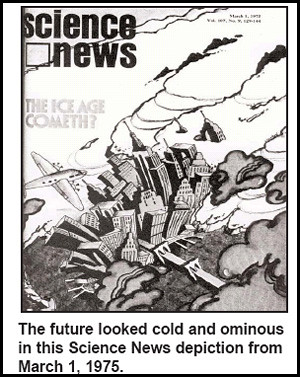 Vet inte om du läste min post i onsdags, "Cap and Trade och amerikansk energipolitik", med bl a en
Vet inte om du läste min post i onsdags, "Cap and Trade och amerikansk energipolitik", med bl a en WSJ- IBD-artikel av Newt Gingrich om hur amerikansk energipolitik nu innebär att projekt med fossil energi stoppas samt om de allvarliga hot det innebär.
Vet heller inte om ni läsare av bloggen helst ser politiska eller vetenskapliga inlägg, men vill nämna en vetenskapsmans artikel i Investor's Business Daily, nämligen professor Fred Singers artikel "Anti-CO2 Campaign Like An Atom Bomb On U.S. Economy".
-
Singer inleder med att nämna att miljömyndigheten EPA kan komma att kategorisera kolioxid som "Endangerment Finding", vilket skulle tvinga fram regleringar, men menar att det troligen inte sker då det vore som en atombomb mot ekonomin. Singer fortsätter:
"...there is speculation that the White House strategy is to use the threat of EPA regulation to force Congress to take action.
Is this just a bluff — and how will Congress respond, in view of the financial meltdown, failure of emission-trading in Europe, and Chinese refusal to cut CO2 emissions? The answer seems to be: "Not this year!"
An endangerment finding that CO2 is detrimental to "health and human welfare" must be based on scientific facts — and they will certainly be disputed. Furthermore, in July 2008 the EPA issued an Advance Notice of Proposed Rulemaking and there have been many negative comments to which the EPA must respond — under threat of litigation.
So, proposed action by EPA is not a "done deal" and may only be an empty threat."
Singer hyser alltså viss optimism beträffande detta överhängande hot från "en atombomb". Jag är inte väl insatt i amerikansk politik men att såväl EPA som denna kongress kan göra misstag befarar jag inte är omöjligt. Kongressens demokratiska majoritet skiljer sig från när Lieberman-Warner-förslaget om Cap and Trade fälldes. Kan Obama ha lagt så mycket prestige i detta att en del av de 30 procent demokrater som röstade mot Lieberman-Warner ändrar position?
Singer beskriver vidare Cap and Trade...
"...involving not only reporting of emissions, monitoring, inspection, and punishment, but also special deals for favored industries and other parties. Some in Congress therefore like the idea of Cap & Trade, which does not sound like a tax but would cost even more. The White House estimate is $650 billion over an eight-year period. And of course, it would be an open invitation to lobby Congress for special favors: the "Lobbyists Full Employment Act of 2009."
One of the worst features of Cap & Trade is the idea of "soft caps," which would allow Congress to increase the yearly allowance if the price for permits seems too high. In essence, anyone who bought emission permits for future use could find his investment nullified by Act of Congress. This feature alone may scuttle the legislation.
Professional economists, in and out of the government, prefer a straight carbon tax to Cap & Trade: it is more transparent, easier to administrate, and less subject to abuse."
Man kan även tillägga att ekonomiska konjunkturens påverkan på utsläppsrätters pris försvårar företags ekonomiska planering.
(Apropå grön lobbyism attraherad av kostsamma regleringar: statistik från en WSJ-artikel.)
Hoppas verkligen att Singers misstanke att Obama-administrationens förslag för EPA bara är ett tomt hot visar sig riktig och att det i så fall även får minimal effekt.
-------------------------------------------------------------------------------------------------------------------
Andra bloggar om: samhälle, energi, ekonomi, klimatpolitik, energipolitik, Cap and Trade, utsläppsrätter, USA, Obama, Fred Singer


 Climategate -- The Crutape Letters, by Steven Mosher and Thomas W. Fuller
Climategate -- The Crutape Letters, by Steven Mosher and Thomas W. Fuller
 The Deniers
The Deniers


No comments:
Post a Comment
Anonyma, hitta på och ange signatur. Annars gäller att någorlunda hålla sig till ämnet och visa vanlig hyfs.
Note: Only a member of this blog may post a comment.